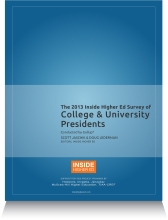How Cengage Learning Views the Changing Higher Ed Landscape
![]() By Joshua Kim. The world of educational publishing is completely fascinating. What other industry faces more pressure to change in this world of print-to-digital than textbook publishers? How will the leadership of the large education publishing companies pull off this transition? What role will publishing play in how higher ed evolves in an age of information abundance? My method for answer these and other questions is to try to get to know the people that work in publishing. I like these people. In some near parallel universe I work for an educational publisher, and they work for a university. We share a common set of values, a shared vocabulary, and often the strong feeling that the status quo can no longer hold. One of the most insightful leaders in the world of educational publishing is William Rieders, Chief Strategy and Corporate Development Officer for Cengage Learning. We first met William when I interviewed him for a piece about his transition from the consulting to the publishing world. Read more...
By Joshua Kim. The world of educational publishing is completely fascinating. What other industry faces more pressure to change in this world of print-to-digital than textbook publishers? How will the leadership of the large education publishing companies pull off this transition? What role will publishing play in how higher ed evolves in an age of information abundance? My method for answer these and other questions is to try to get to know the people that work in publishing. I like these people. In some near parallel universe I work for an educational publisher, and they work for a university. We share a common set of values, a shared vocabulary, and often the strong feeling that the status quo can no longer hold. One of the most insightful leaders in the world of educational publishing is William Rieders, Chief Strategy and Corporate Development Officer for Cengage Learning. We first met William when I interviewed him for a piece about his transition from the consulting to the publishing world. Read more...




/https%3A%2F%2Fprofilepics.canalblog.com%2Fprofilepics%2F1%2F0%2F1076071.jpg)